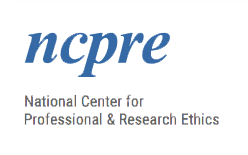Providing resources and expertise to identify and address problems for educational institutions.
TCU Conferences generally take place in Chicago in the spring. This invitation-only conference is an opportunity to resolve the challenges of one or more academic units at your institution. Contact ethicsctr@illinois.edu for more information.
Find out more
When academic units face challenges of internal conduct and governance…

…it can undermine their abilities to fulfill their missions of teaching, research, and service. Assessing and assisting these units to return to vibrancy and vigor can be complex.
- The Transforming Challenged Units Consortium is headed by an elected Executive Committee of high-level academic leaders with extensive experience in restoring challenged academic units to vibrancy.
- The Executive Committee and other experts supporting the Consortium do not provide direct interventions; instead, the Transforming Challenged Units Consortium brings institutional stewards together, and connects them with supporting resources.
The Consortium is pleased to have published a white paper on Academic Leadership Development, which underpins the work of sustaining health in academic units and salvaging them when things go wrong.
An NCPRE Consortium
 The National Center for Principled Leadership & Research Ethics (NCPRE) creates and shares resources to support the development of better ethics and leadership practices. We focus on leadership in a variety of institutional settings, from academia to business. NCPRE is part of the Coordinated Science Laboratory in the College of Engineering at the University of Illinois at Urbana-Champaign.
The National Center for Principled Leadership & Research Ethics (NCPRE) creates and shares resources to support the development of better ethics and leadership practices. We focus on leadership in a variety of institutional settings, from academia to business. NCPRE is part of the Coordinated Science Laboratory in the College of Engineering at the University of Illinois at Urbana-Champaign.
Membership Benefits
Institutional members have access to resources and opportunities for networking and solution development. Resources will be updated on a rolling basis to reflect emerging good practice and accumulated collective wisdom. The collection is envisaged to include case studies (exposition, explanations, outcomes), tools, and assessment assistance for those working with such units on particular issues. Member institutions benefit from free attendance at the Consortium’s conferences as well as access to resources (case studies, best practice guides, etc.) and tools for assessing and working with challenged units that would be continually augmented through research and shared experience and feedback.